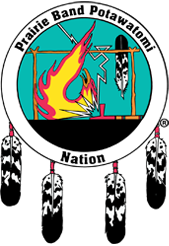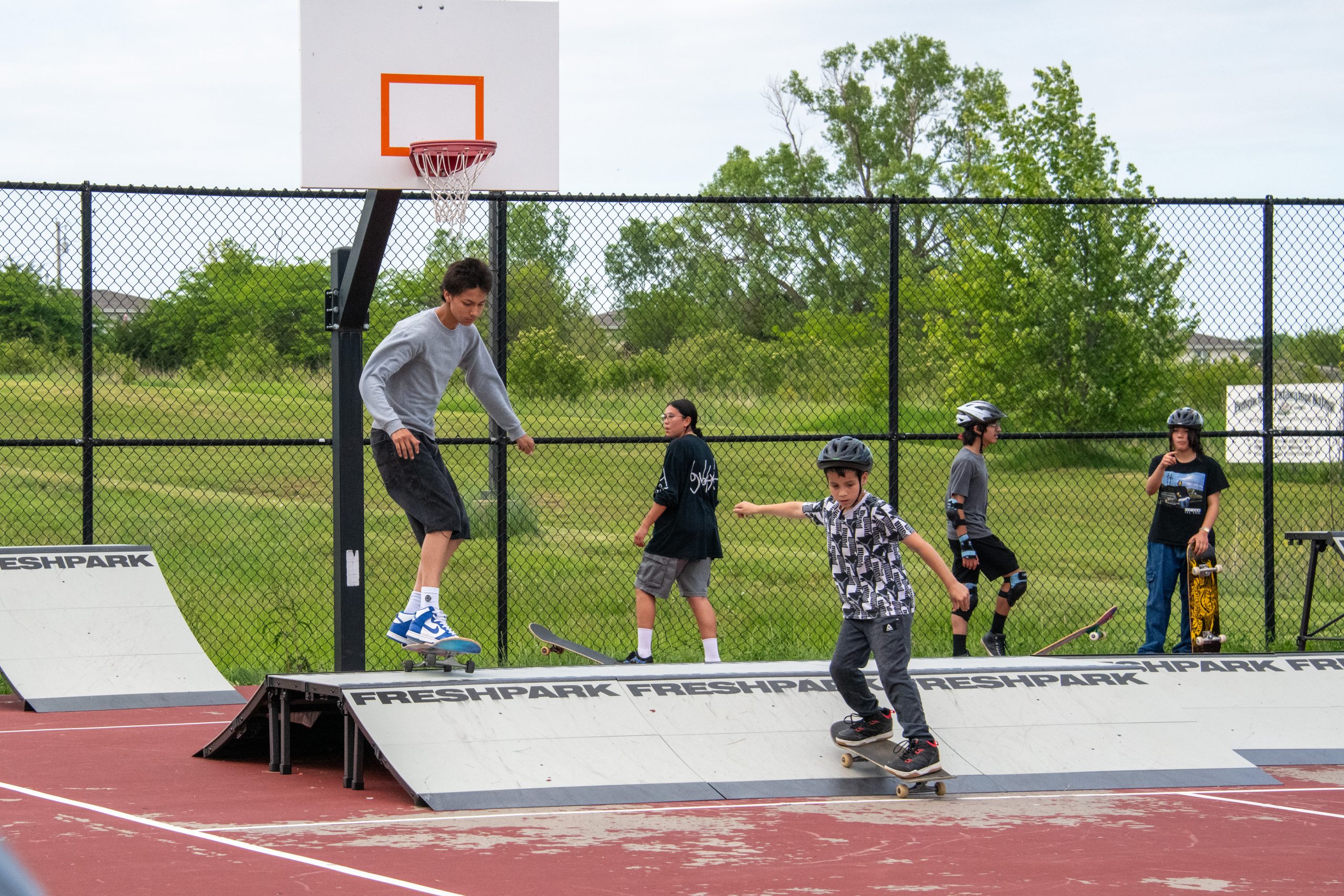
05.23.24 — Community youth have fun practicing their skateboarding skills during the open community skate session on Thursday, May 23, at the Boys and Girls Club.
Community youth participated in two days of skateboarding workshops facilitated by Nations Skate Youth on May 22–23 at the Boys and Girls Club. In the evening on May 23, the wider community was invited to an open skateboarding session, also at the Boys and Girls Club.
Ramps and other equipment were set up on the basketball court behind the Club, where skateboarders of all ages were invited to join in.
The workshops and community skate session were sponsored by PBPN Wellness Connection Services (WCS), which is a program that aims to reduce the impact of trauma on young people, particularly in regard to substance misuse and suicidality. Alex Wang, WCS Program Assistant, said that the idea of bringing a skateboarding workshop to the community came from his own interest in skateboarding.
“I was talking to Terrence, our YSUD (Youth Substance Use Disorder) Counselor, and we both shared a common interest in skateboarding, so we started skating on lunchbreaks,” Wang said. “Then one day he asked me if I had seen the Joe Buffalo film, which is a short movie.”
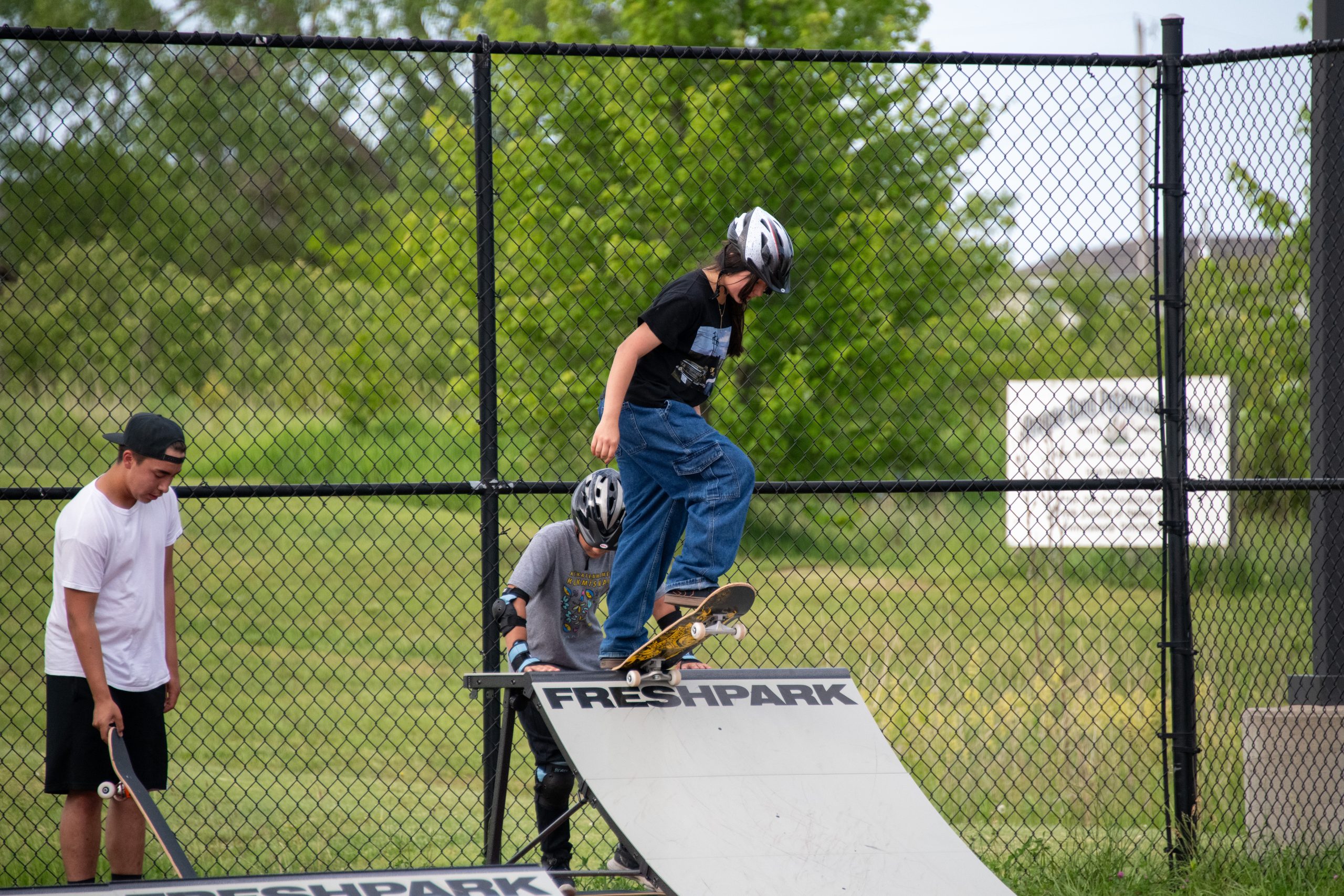
05.23.24 — Community youth take turns dropping in during the open community skate session.
The short documentary “Joe Buffalo” tells the story of the titular Indigenous skateboarder Joe Buffalo, who is a survivor of Canada’s Indian Residential School system. The film details his struggles with intergenerational trauma and addiction, as well as his journey to overcome them.
“I went and checked it out, and I thought, well, since we’re in the work of prevention, maybe we could try to bring him out here,” Wang said. “So we looked up his work and found out he was working through Nations Skate Youth, and so I sent an inquiry out. I just said, ‘Hey, we’re with Prairie Band Potawatomi Nation, and we’re working with prevention for substance use and suicide prevention with youth, and we wondered if you were interested in coming out for a workshop.’”
The Nations Skate Youth team agreed to facilitate a workshop, which was originally scheduled for the fall of 2023.
“At the time, we didn’t have any of the equipment or anything,” Wang recalled. “Then they let us know that they needed to push it back a bit. I was pretty bummed out at the time, but I think it all worked out because now we have the ramps, which our program advocated for, we had more time to plan, and we got more interest.”
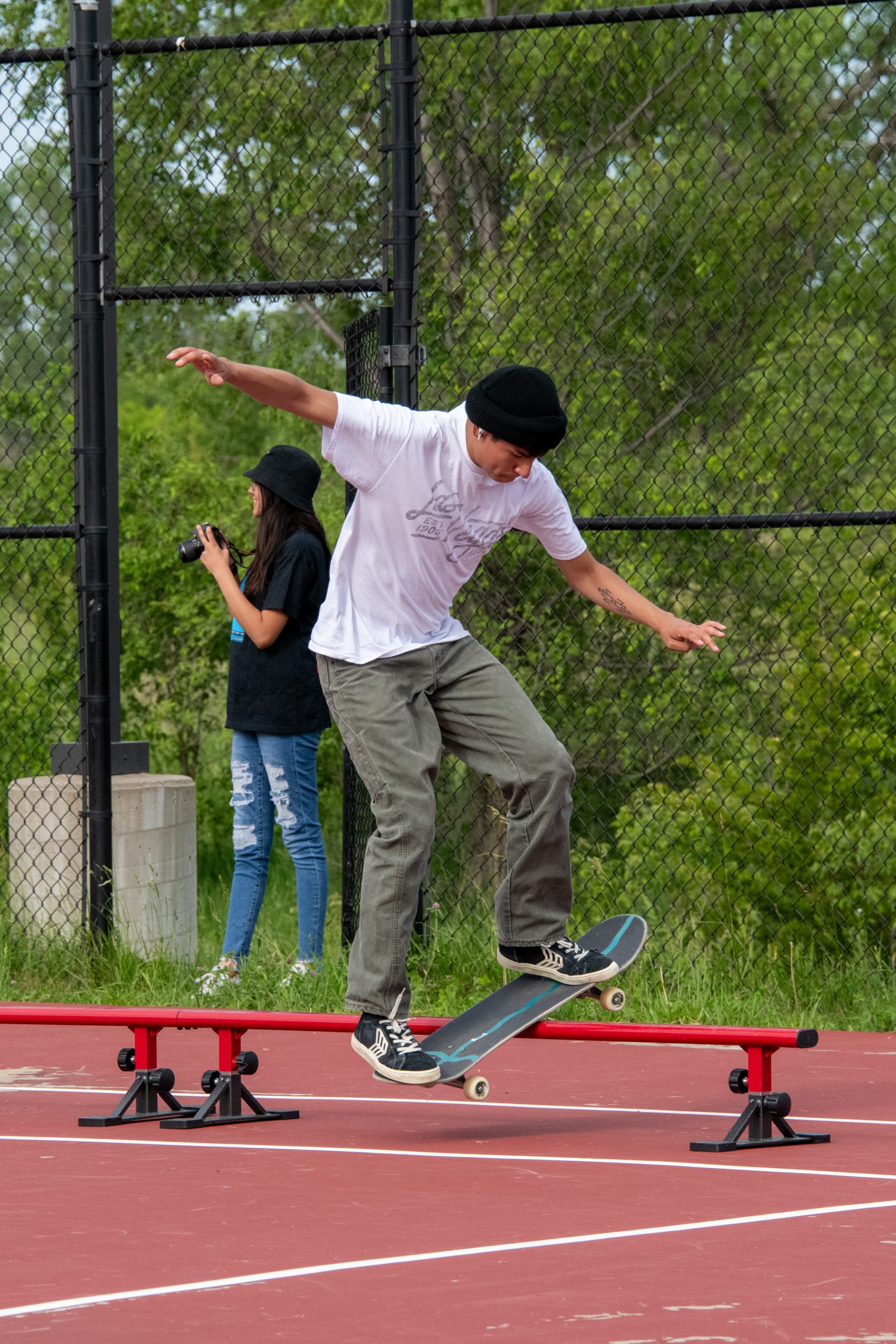
05.23.24 — Skateboarders of all experience levels participated in the open community skate session.
Nations Skate Youth regularly facilitates skateboarding workshops for different Indigenous communities, where they aim to create safe spaces for youth to speak their voice and gain confidence in themselves. Through their workshops, the organization seeks to empower Indigenous youth to embrace their right to self-determination through the positive impact of skateboarding. Nations Skate Youth was founded by Rosie Archie, Joe Buffalo, Dustin Henry, and Tristan Henry as an Indigenous-led organization to inspire youth through sharing stories and encourage the importance of keeping Indigenous cultures and traditions alive.
Rosie Archie explained that the workshops are designed to build trust between the Nations Skate Youth members and the community youth so that they can discuss meaningful and sometimes difficult topics.
“It’s how I start my workshops,” Archie said. “I say, ‘Today, I want to laugh with you all, I want to cry with you, and if you need a hug, I’m here.’ And yesterday, I asked this kid, ‘Do you need a hug?’ And he said, ‘Yeah.’”
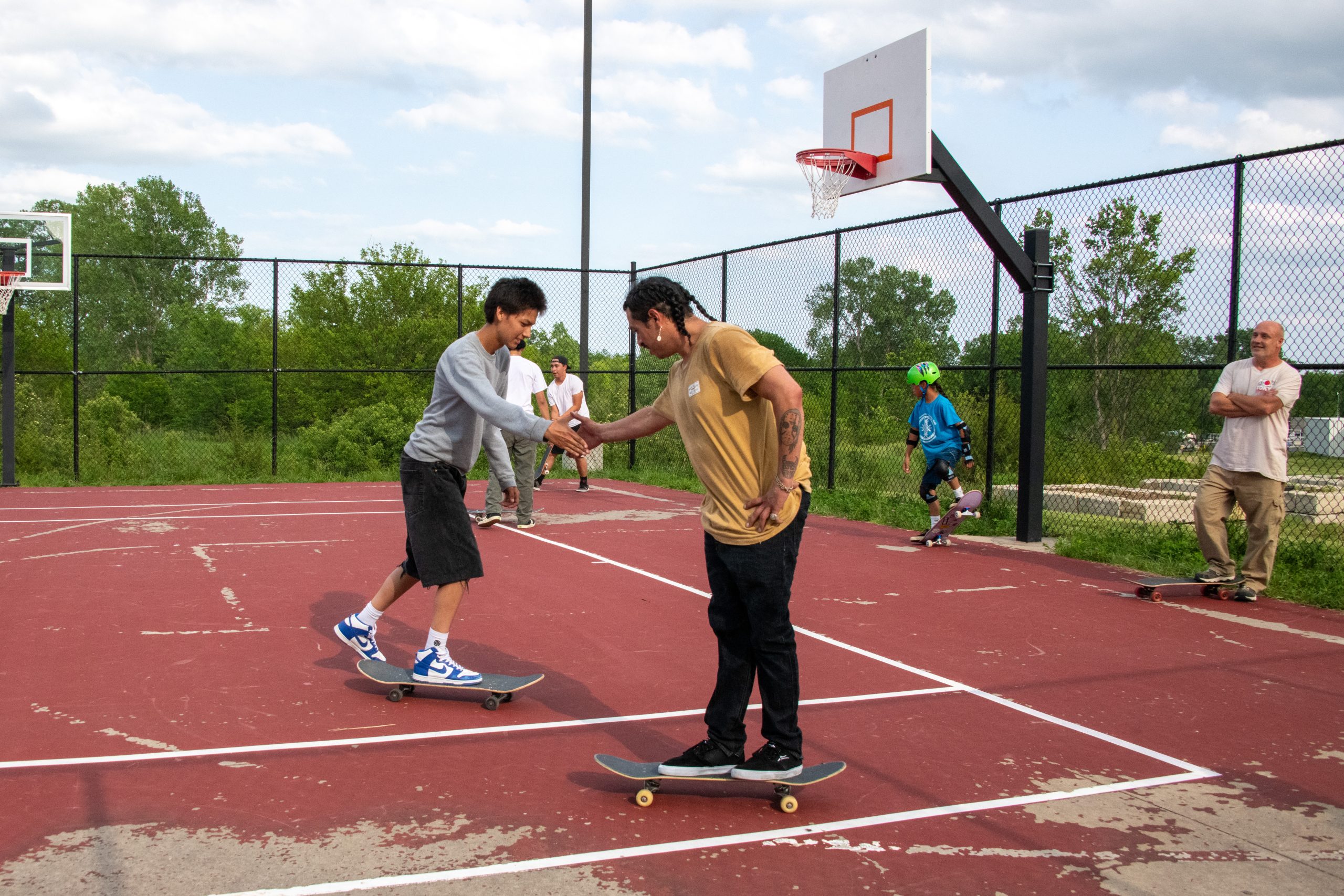
05.23.24 — The skateboarding workshop helped build a trusting relationship between members of Nations Skate Youth and participants from the community.
Nations Skate Youth’s mission to empower Indigenous youth is centered on decolonizing the mind, which means challenging the racist and colonialist ideas and perspectives that the dominant culture imposes on us. It is important to challenge these harmful influences early on, because being made to feel ashamed of one’s skin color, culture, language, or traditions can lead to self-destructive habits such as substance abuse and self-harm.
“When we talk about that in a skateboard workshop, we bring in all this heaviness of telling the older kids, you know, drugs and alcohol and suicide, those are things you can control if you keep a healthy and positive mind,” Archie explained. “Stay away from the drugs and the alcohol. Those are cool things that we can talk about. I feel like it’s not talked about enough — about mental health and believing in yourself.”
“I just tell them things that I wanted to be told when I was a kid,” Archie continued. “I want to mentor them and tell them things, like I wish someone told me not to give up. I wish someone told me that I was loved more, that I matter.”
The workshop not only helped the participants grow through sharing stories and building relationships, but it also gave them a new outlet for creative expression. The workshop provided free skateboards and other equipment for participants, which helped overcome the financial barrier to skateboarding, since equipment can be expensive.
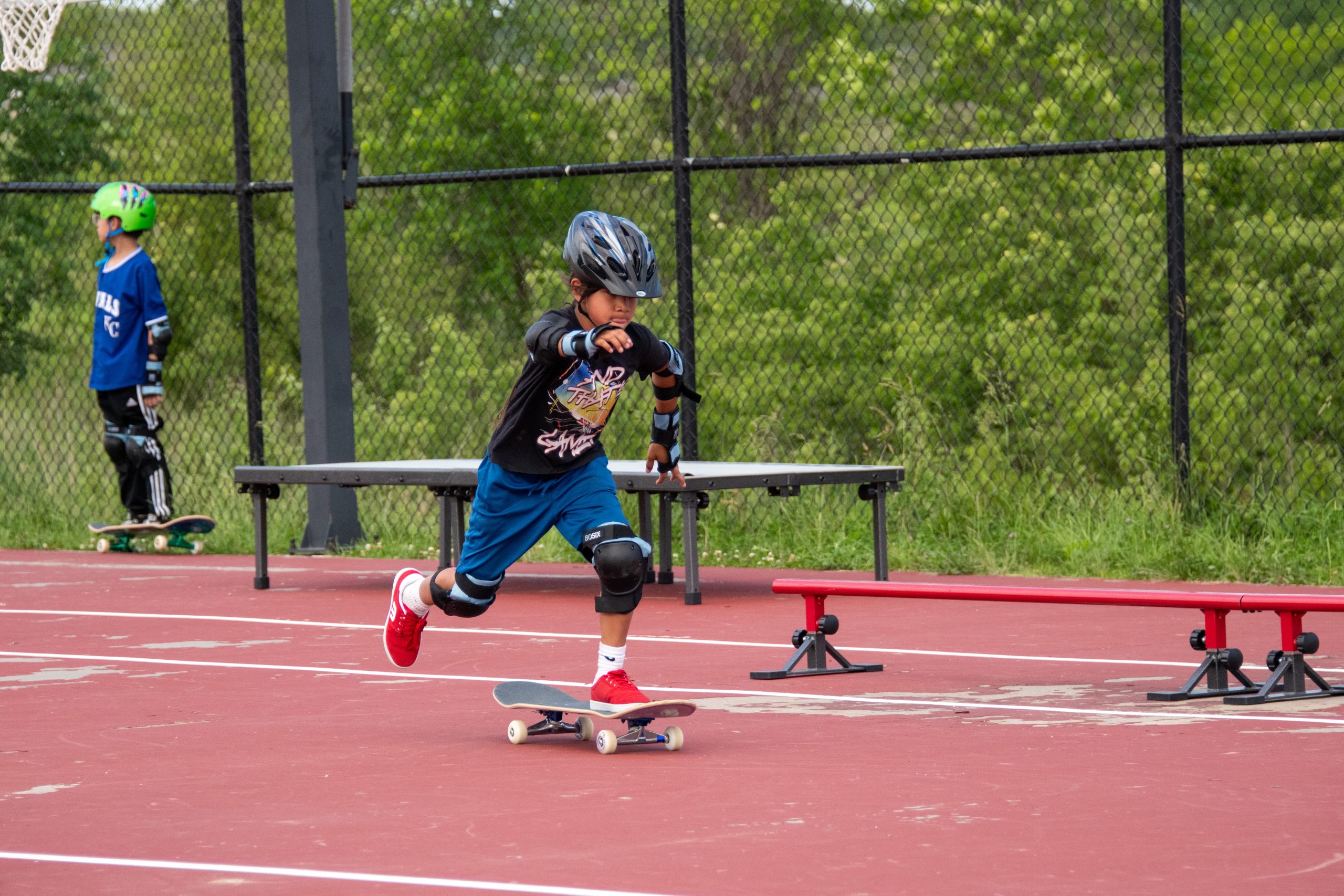
05.23.24 — Many of the younger participants in the skateboarding workshop had never skated before. They received their first board for free as part of the workshop.
By providing free boards, the workshop equitably equipped the youth to try a new activity in a safe and supportive environment, allowing them to gain experience and build confidence in themselves.
“It’s amazing, getting to meet kids and then having them come up and be like, ‘I did it!’ These kids never skated before, and to see them dropping in — it’s insane,” Archie said. “It’s cool because it builds confidence in them. You can’t buy confidence.”
Although kids of all ages and levels of skateboarding experience participated in the workshop, most of the younger participants had never skated before. Many had difficulty even standing on a board at the beginning of the workshop, but by the time of the community skate session, they were able to have fun skating around with their friends.
“I think when we do these workshops, we see a lot of people transform in front of us,” Archie reflected. “I’m really happy to be someone they might remember — they might forget me, but they’ll remember when they got their first skateboard. Because I’m 42 now, and I remember in 1992 when I got my first board. And it changed my life.”
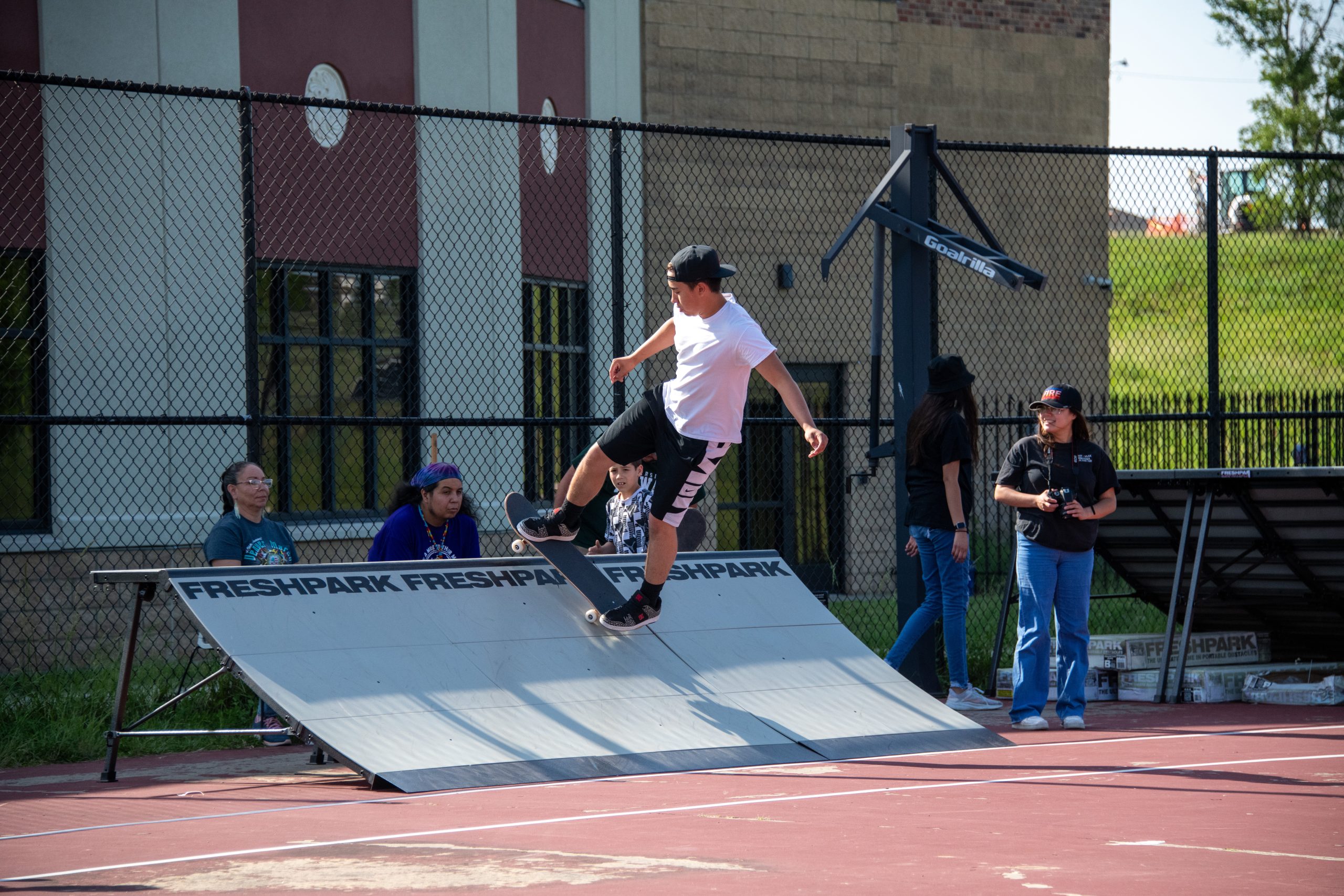
05.23.24 — Skateboarders of all experience levels participated in the open community skate session.
Archie explained that, when she was a teenager, she and her sister hitchhiked for hours to go skateboarding because there was no community for them at home. She lost her sister at a young age, which later inspired her to work with and support youth through the positive impact of skateboarding.
“We want to be able to come and create a group, so they don’t have to hitchhike anywhere, because they have ramps right here,” Archie explained. “They have other kids they could become best friends with.”
“For myself, [activities like skateboarding are] just a way to stay positive and stay motivated,” Wang said. “With skateboarding in particular, you have to be 100% focused to do anything, so I think it’s a good way to reset your mind when you’re going through stressful times. Sometimes in my office, when I get stressed out, I just have to go skate for a little bit and come back with a clear mind. That’s what I want for these kids, to have an outlet that’s going to keep them motivated and get them through the tough days.”
Wang added: “Thanks to everyone who came out, the participants, and also to our team members, our WCS staff — Sam, Paul, Tannis, Terrence. Everybody pitched in and really helped me to coordinate everything.”
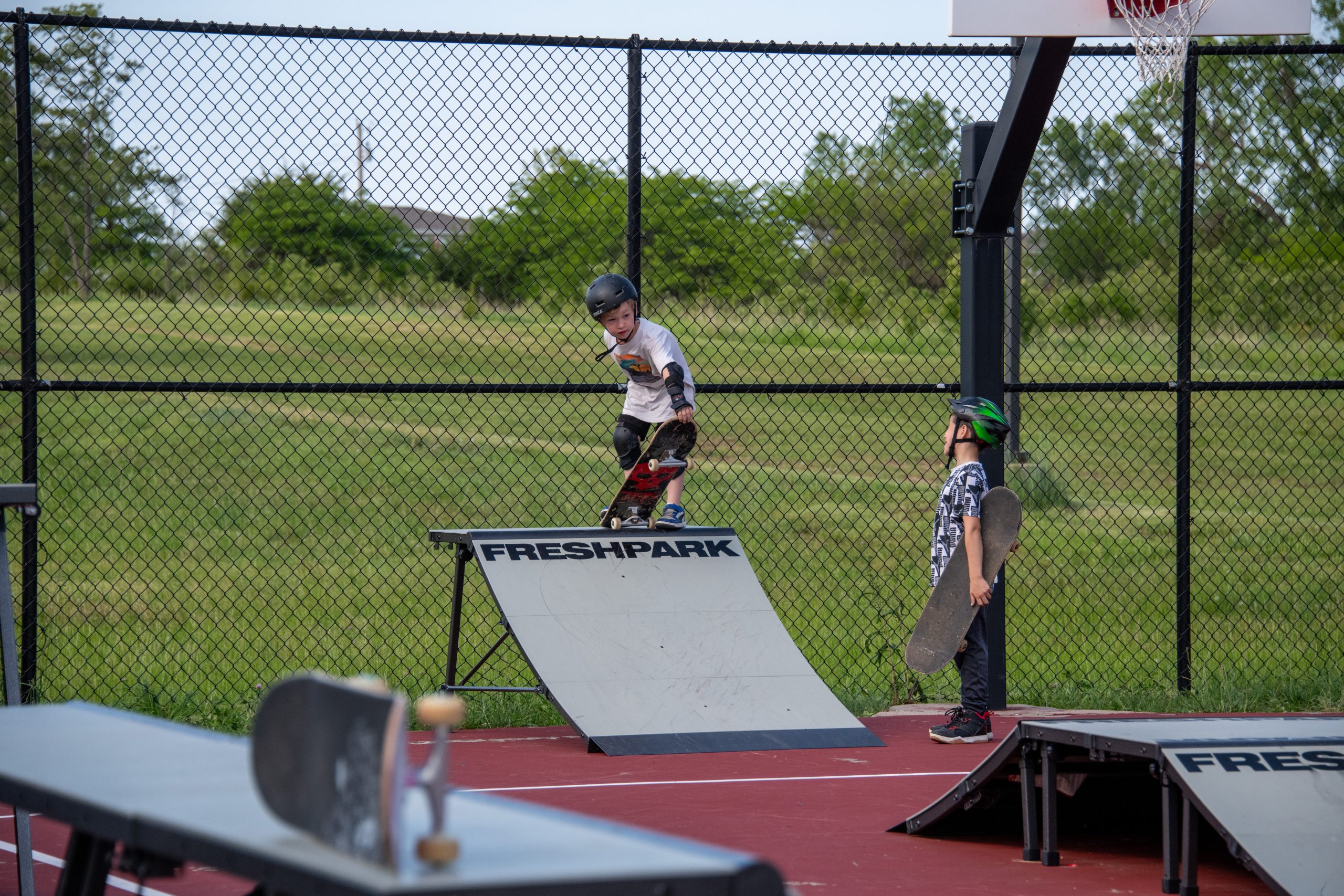
05.23.24 — Many of the younger participants in the skateboarding workshop had never skated before. They received their first board for free as part of the workshop.
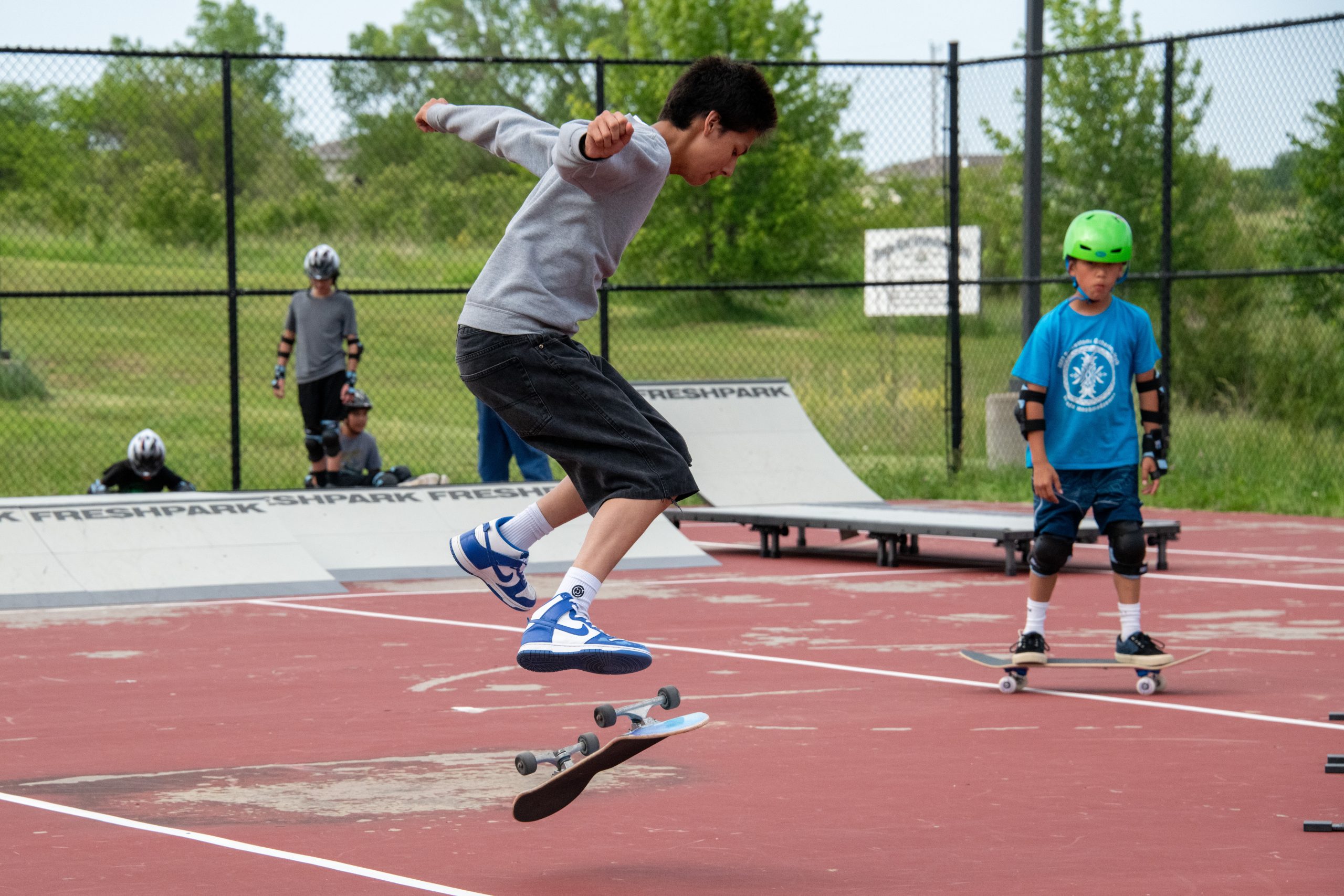
05.23.24 — Skateboarders of all experience levels participated in the open community skate session.
